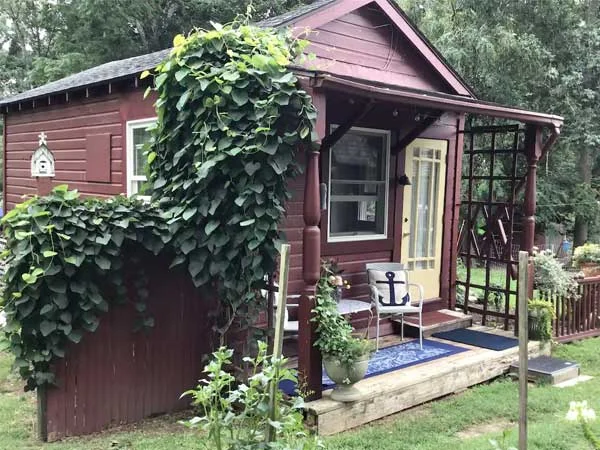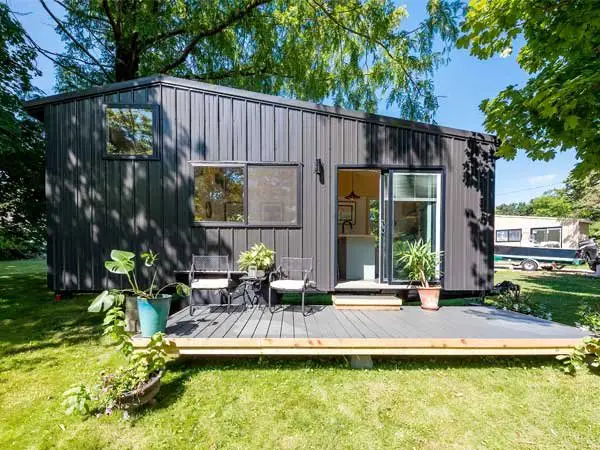Have you ever wondered if tiny homes are legal in Rhode Island? Perhaps you’ve been considering downsizing and embracing a minimalist lifestyle, but you’re unsure about the legalities involved. In this article, we will explore the regulations surrounding tiny homes in the beautiful state of Rhode Island, shedding light on whether you can fulfill your dream of living in a charming, compact dwelling.
Overview of tiny homes
What are tiny homes?
Tiny homes are small, compact living spaces that typically range from 100 to 400 square feet in size. They are designed to maximize efficiency and utilize minimal resources while still providing all the necessary amenities for a comfortable lifestyle. These homes often feature innovative and creative designs, making the most of every inch of space.
Why are they popular?
Tiny homes have gained significant popularity in recent years due to a variety of reasons. Firstly, they offer an affordable housing solution, allowing individuals to own their own space without the burden of a large mortgage. Additionally, the minimalist lifestyle associated with tiny homes promotes a focus on experiences and connection rather than material possessions.
Furthermore, tiny homes are environmentally friendly, as they require fewer resources to build and maintain. They have a reduced carbon footprint and can also be equipped with sustainable features such as solar panels and composting toilets. These factors have attracted a growing number of people who wish to live a more sustainable and simplified lifestyle.
Building and zoning regulations in Rhode Island
State regulations
Rhode Island has specific building and zoning regulations that govern the construction and placement of homes, including tiny homes. It is important to understand and comply with these regulations to ensure that your tiny home is legal and safe.
Local regulations
In addition to state regulations, cities and towns within Rhode Island may have their own building and zoning ordinances that must be followed. It is crucial to research and adhere to these local regulations to avoid any legal issues when building or placing a tiny home.
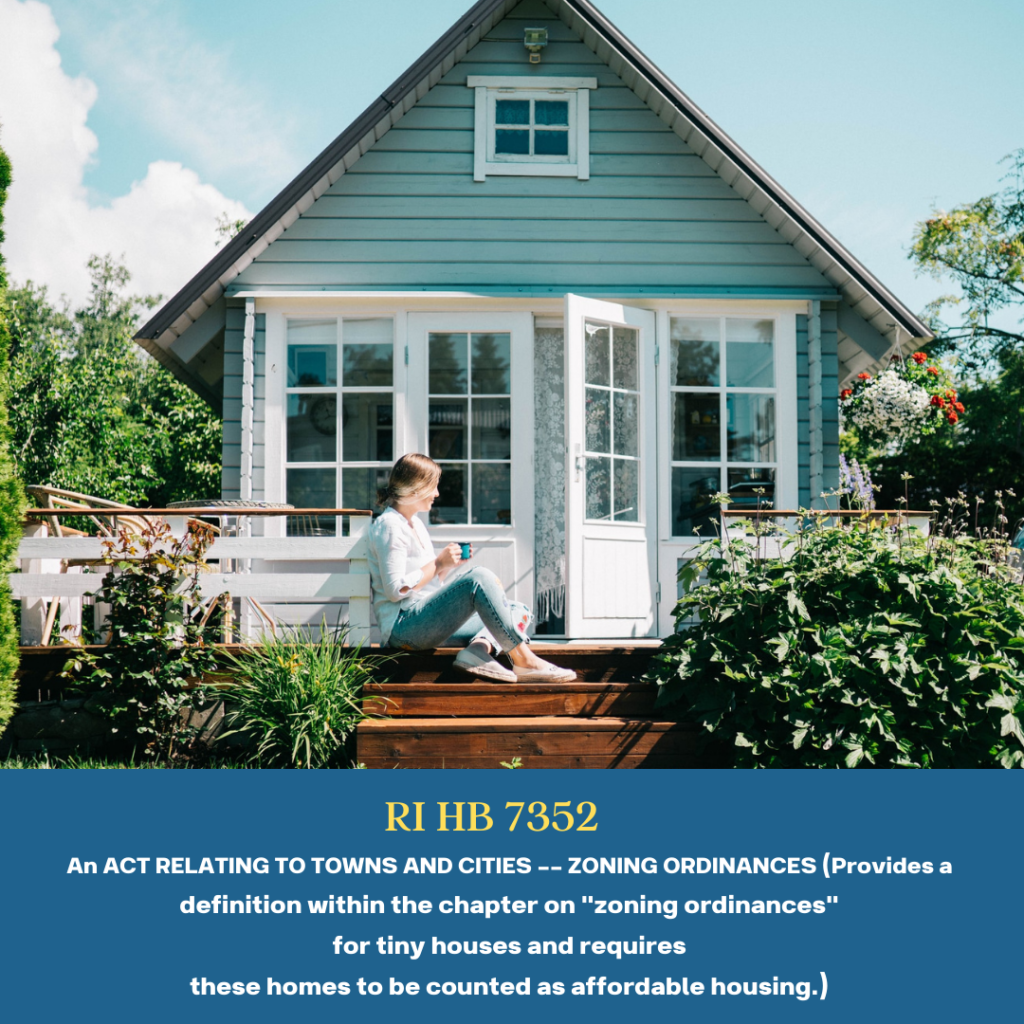
State regulations
Rhode Island Building Code
The Rhode Island Building Code sets forth the minimum standards for the construction and renovation of buildings in the state. This code covers aspects such as structural integrity, fire safety, plumbing, electrical systems, and accessibility. Before constructing a tiny home, it is important to review and adhere to the requirements outlined in the Rhode Island Building Code to ensure compliance.
Rhode Island Residential Code
The Rhode Island Residential Code focuses specifically on the construction, alteration, and repair of residential structures, including tiny homes. This code includes guidelines for issues such as insulation, ventilation, and energy efficiency. Compliance with the Rhode Island Residential Code is essential to ensure the safety and habitability of a tiny home.
Local regulations
City zoning ordinances
Cities within Rhode Island may have their own zoning ordinances that regulate land use, density, setbacks, and other factors that can impact the placement of a tiny home. Researching and understanding the specific zoning requirements for the city in which you plan to build or place a tiny home is vital to avoid any complications or violations.
Town building codes
Like cities, towns within Rhode Island may have their own building codes that apply to the construction of tiny homes. These codes may address issues such as setbacks, height restrictions, and design standards. To ensure compliance and legality, it is important to consult the building codes of the town in which you plan to build your tiny home.
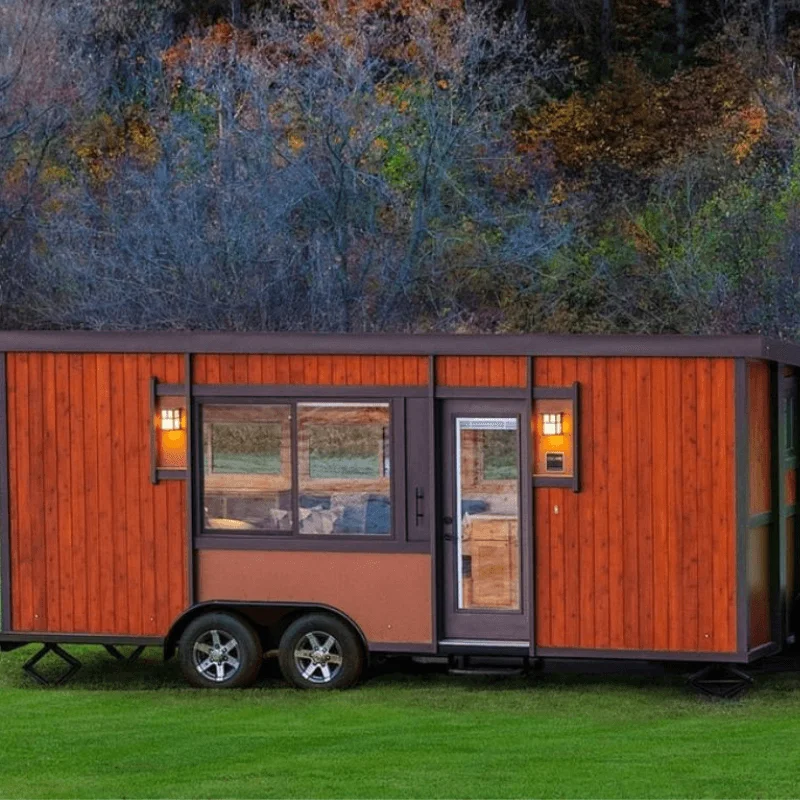
Challenges for tiny home enthusiasts
Minimum size requirements
One of the major challenges faced by tiny home enthusiasts in Rhode Island is the minimum size requirement imposed by state and local regulations. Many zoning ordinances and building codes specify a minimum square footage for homes, which can make it difficult to legally build or place a tiny home. Advocacy and awareness are essential in challenging these size requirements and advocating for more flexibility in housing options.
Parking restrictions
Another challenge for tiny home enthusiasts in Rhode Island is the issue of parking. Many areas have parking restrictions that can limit the ability to park a tiny home on a specific property. It may be necessary to seek alternative parking solutions or collaborate with local legislators to address these restrictions and find viable solutions for tiny home parking.
Steps to legalizing tiny homes in Rhode Island
Advocacy and awareness
The first step toward legalizing tiny homes in Rhode Island is to generate advocacy and raise awareness about the benefits and potential of tiny homes. This can be done through community engagement, organizing events, and educating people about the advantages of tiny homes in terms of affordability, sustainability, and efficient land use.
Collaboration with legislators
Collaborating with legislators is crucial to bring about change in building and zoning regulations. Forming partnerships with lawmakers and presenting a well-researched case for tiny homes can help initiate discussions and potentially lead to legislative changes. It is important to work together to find common ground and address any concerns or misconceptions surrounding tiny homes.
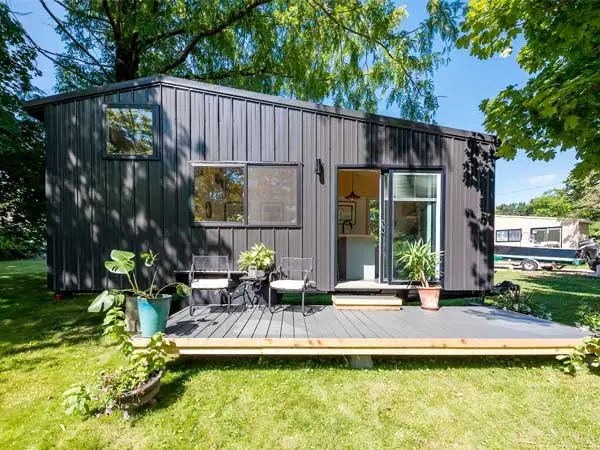
Examples of successful tiny home communities in Rhode Island
Hope Village
Hope Village is a notable example of a successful tiny home community in Rhode Island. Located in the town of Warwick, this community provides affordable housing options in the form of tiny homes. It showcases how tiny homes can be integrated into existing neighborhoods and provide a supportive community for residents.
Triumph Village
Triumph Village is another inspiring tiny home community in Rhode Island, situated in the town of West Greenwich. This community consists of well-designed, energy-efficient tiny homes that promote sustainability and a sense of community. Triumph Village demonstrates the potential for tiny homes to offer a unique and affordable housing solution while incorporating eco-friendly features.
Pros and cons of tiny homes in Rhode Island
Affordability and minimalism
One of the major advantages of tiny homes in Rhode Island is their affordability. With lower construction and maintenance costs compared to traditional homes, tiny homes offer a more accessible housing option for individuals seeking to own a property without incurring excessive debt. Additionally, the minimalist lifestyle associated with tiny homes encourages the reduction of expenses and the elimination of clutter, promoting financial freedom and simplicity.
Limited space and adaptability
The limited space in tiny homes can be both a pro and a con. On the positive side, the compact living space can encourage creativity and resourcefulness, as occupants must make the most of every square inch. Tiny homes also promote a more sustainable and efficient use of land. However, the confined space can be a challenge for some individuals who may struggle with limited storage options and adjusting to a more minimalist lifestyle.

Regulations in neighboring states
Connecticut
Connecticut, like Rhode Island, has its own building and zoning regulations that impact the legality of tiny homes. These regulations can vary between different towns and cities in the state, so it is important to thoroughly research and understand the specific requirements before considering the construction or placement of a tiny home in Connecticut.
Massachusetts
Massachusetts also has specific regulations regarding the construction and placement of tiny homes. These regulations can differ between cities and towns, and compliance with local ordinances is crucial to ensure legality. Researching and understanding the building codes and zoning ordinances of specific locations in Massachusetts is essential for individuals interested in tiny homes.
Future outlook for tiny homes in Rhode Island
Potential legislative changes
While there are challenges and restrictions surrounding tiny homes in Rhode Island, the future outlook is promising. With continued advocacy and collaboration with lawmakers, there is the potential for legislative changes that allow for more flexible regulations regarding tiny homes. This could open up opportunities for affordable housing, sustainable living, and increased diversity in housing options.
Growing demand and interest
The growing demand and interest in tiny homes in Rhode Island indicate a shift in housing preferences among individuals and communities. As more people recognize the benefits of tiny homes, the demand for legal and accessible options is likely to increase. This growing interest may further fuel the momentum for change and drive improvements in state and local regulations to better accommodate tiny homes.
In conclusion, while legalizing tiny homes in Rhode Island may present certain challenges, there is an increasing recognition of their benefits and potential. Building and zoning regulations, both at the state and local levels, play a crucial role in determining the legality and feasibility of tiny homes. By advocating for change, collaborating with legislators, and learning from successful examples, Rhode Island can pave the way for a future where tiny homes are embraced as a viable and sustainable housing option.
